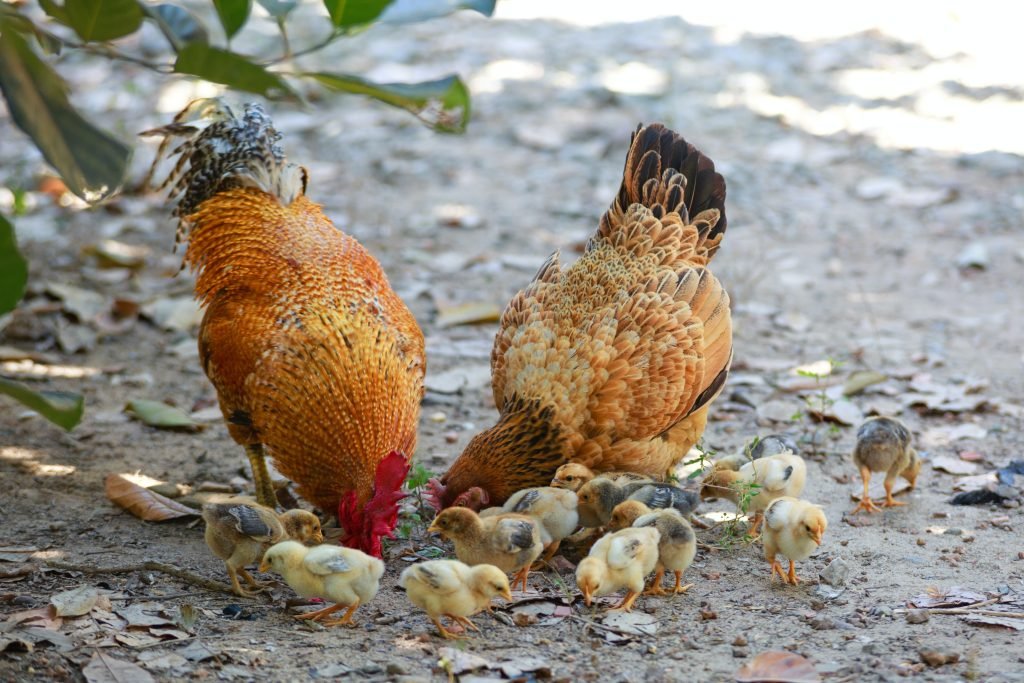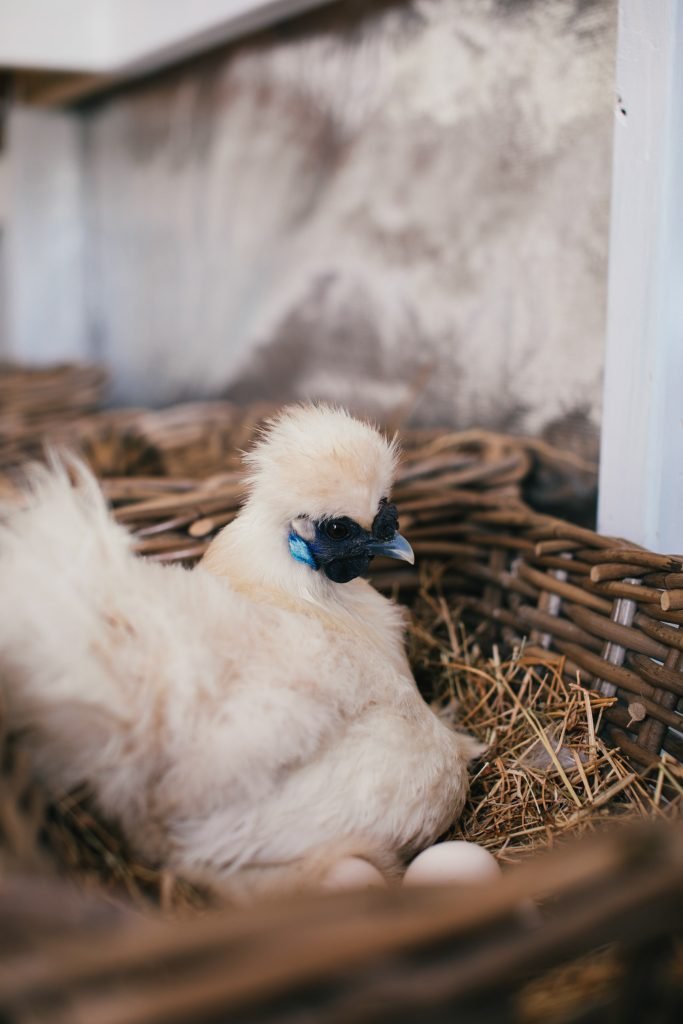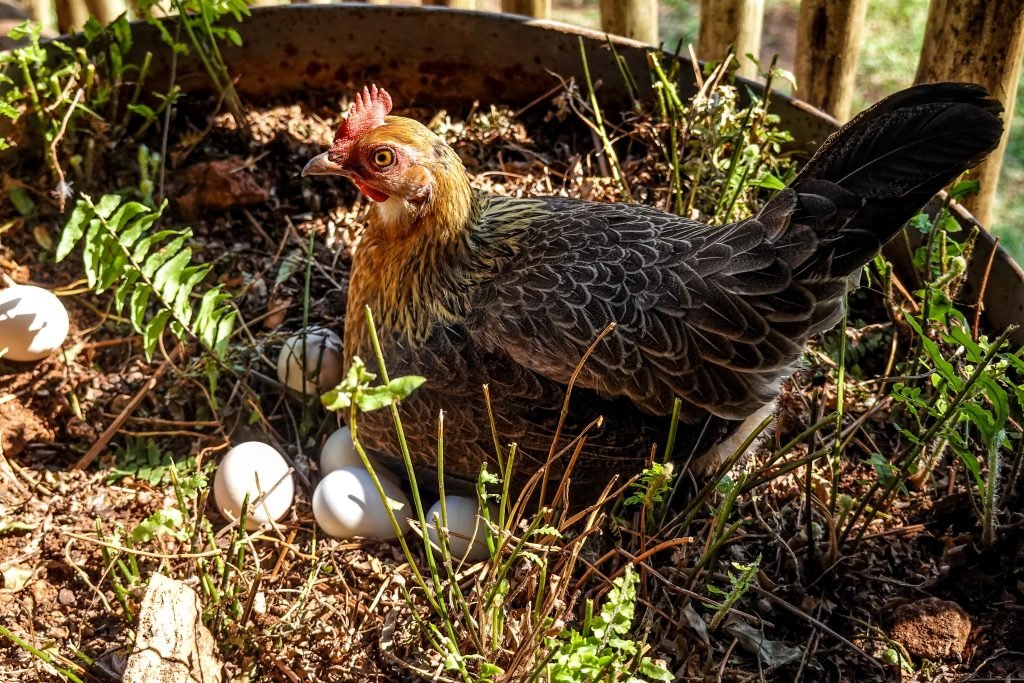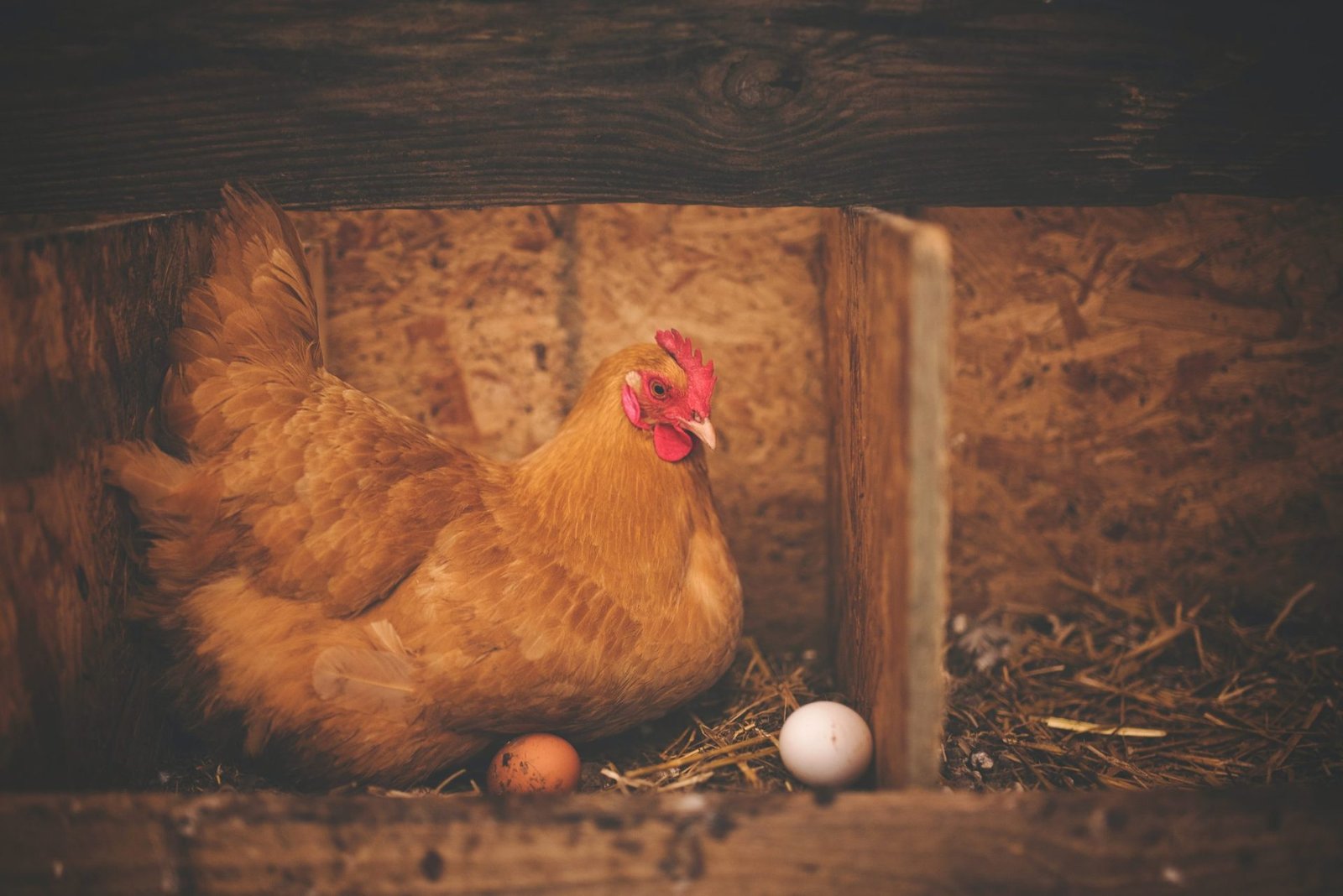Foster mother chickens, or “broody” chickens, are a type of chicken that has a natural instinct to sit on and care for eggs, similar to the way a mother hen would. Broody hens typically begin sitting on eggs shortly after they are laid and will continue doing so until the eggs hatch.
This makes them excellent foster mothers when it comes to caring for newly hatched chicks. They provide the warmth and protection that the chicks need in order to thrive, ensuring their survival and helping with the hatching process.
Broody hens make an invaluable addition to any flock of chickens, as they help ensure a healthy number of chicks that can be raised successfully.
What is Foster Mother Hen?
Foster Mother Hen is a term used to describe an adult hen that takes over the parenting role of orphaned baby chicks. Foster hens take in young chicks that have lost their own mother and care for them as if they were her own.
The foster mother will teach the chicks how to feed, drink, bathe, dust bathe and other important survival skills.
She will protect them from danger and keep them warm at night. This special relationship helps these baby chicks survive and grow into healthy adults.

Foster Broody Hen
Foster Broody Hen is an affectionate term used to refer to a chicken who is taking on the role of mother, either to her own eggs or those of another chicken.
A hen going through this maternal stage is often seen crouching in her nesting box, turning and fluffing the straw and making clucking noises. A foster broody hen will vigorously defend her nest and take good care of the eggs until they hatch.
While broody hens are often seen as a nuisance in commercial operations due to decreased egg production, these mama-hens are truly special and are usually adored by their keepers!
Broody Hen as a surrogate mother
The idea of a broody hen as a surrogate mother has been gaining popularity in recent years, especially amongst backyard chicken enthusiasts. Broody hens are those hens who become intensely protective and devoted to their eggs, and they make excellent mothers.
Not only do they have a natural maternal instinct to keep the eggs safe and warm, but also because of their devoted nature, it’s easy for them to learn to care for any chicks hatched from those eggs that are not her own. For backyard farmers looking for an alternative to expensive incubators, a broody hen can be a great option.
Broodiness can vary from bird to bird; some may naturally go broody more often than others. Those looking for this type of surrogacy will want to select hens that demonstrate broodiness often so that there is less waiting time between hatching new chicks.
Ultimately, choosing a broody hen as a surrogate mother is a great way to get chicks on the farm with minimal expense or effort required.

Introducing the Broody Hen Guide: A Step by Step Guide to Caring for a Broody Hen
Are you the proud owner of a broody hen? Congratulations! While broody hens can be difficult to care for, they are worth it. Here is our step by step guide on how to take care of your beloved feathered friend.
Step 1: Provide her with an adequate space. Since your broody hen will be staying in one place for a few days, you should give her an appropriate area with enough room for nesting and exercising. Make sure to clean the coop before setting up the nest box, as broodies tend to attract mites and other parasites.
Step 2: Offer nutritious food and water. Just like any other chicken, a broody needs a healthy diet to stay strong. Provide plenty of protein-rich treats, as well as fresh fruits and vegetables. Make sure that there is always access to clean water, as this is vital for egg production.
Step 3: Give her access to natural light. Make sure that the nest box is in an area that receives direct sunlight during the day; this will help keep her warm while she’s brooding over her eggs. You may also need to adjust the coop temperature accordingly; during colder seasons make sure it doesn’t drop below 20 degrees Celsius (68 degrees Fahrenheit).
Step 4: Provide additional bedding material if necessary. As your broody continues incubating her eggs, she may require more bedding material for comfort and insulation; extra hay or straw should do the trick.
Step 5: Offer quiet and undisturbed moments when necessary. Unlike other chickens who may appreciate interaction from humans or other animals, broodies typically require complete solitude when sitting on their eggs so that they can keep them at a safe temperature.
Make sure you check up on her periodically but refrain from too much interference otherwise she may abandon her eggs entirely!
And finally, keep an eye out! Once your hen has finished incubating her eggs – which can last anywhere between three weeks and six weeks depending on the breed – you should be able to notice new signs of life around the nest!

How to hatch eggs with a broody chicken?
Hatching eggs with a broody chicken can be an enjoyable and rewarding experience. To begin, you’ll need to find a broody hen.
Broodiness occurs when a female chicken becomes highly protective and has the urge to hatch her eggs. A few common signs of a broody hen include staying in the nest all day, puffing up her feathers, sitting on the eggs for long periods of time, and being aggressive towards anyone who tries to take the eggs away.
Once you’ve identified a broody hen, it’s time to start preparing for the hatching process. Begin by gathering the desired amount of fertile eggs, preferably from the same breed as your broody chicken, or at least from chickens of similar size.
You will also want to ensure that the chosen eggs are clean and free from any visible cracks. Next, you should place these fertile eggs under your broody hen for them to begin incubation. Depending on breed, temperature and humidity levels in the area, your eggs will generally require 21 days of incubation before they are ready to hatch.
Throughout this period you should make sure that your chicken is kept in a warm and dry environment with easy access to food and water. Finally, after 21 days you will be able to witness the wonder of your newly hatched chicks!

Will a hen foster chicks?
Chickens are excellent mothers, and hens have been known to adopt chicks that are not their own. It is possible for a hen to foster chicks, and some studies suggest that hens may be able to recognize chicks from other broods, showing signs of maternal behavior.
When the hens take in foster chicks, they show all the same parenting skills as with their own offspring – incubating eggs, teaching the chicks where food can be found and defending them from danger.
Though it’s less common for a hen to foster another brood’s chicks than for a mother to keep her own young safe, this phenomenon does occur in nature and shows just how dedicated a chicken mother can be.
How do you raise baby chicks with hens?
Raising baby chicks with hens is an incredibly rewarding experience. First, you should acquire a coop that is specifically designed for both adult chickens and baby chicks.
You can either purchase or build one yourself. When raising chicks with hens, make sure to introduce the chicks slowly to their new home by having a period of time when the hens and chicks can become familiar with each other through the fencing between them.
When the chicks are old enough to go into the coop, give them plenty of fresh water and feed so they can get adjusted quickly. Once they have adjusted to their surroundings, be sure to provide lots of supervision so any possible disputes between hens and chicks can be handled swiftly.
Finally, if needed, create more than one feeder and waterer so there will always be adequate resources for everyone in the flock. Raising baby chicks with hens takes time but it is very worthwhile and enjoyable!
How long does a broody hen stay with her chicks?
A broody hen is a hen that is in the nesting mode and will not leave her nest, sitting on her eggs to keep them warm. When the eggs hatch, she will continue to stay with her chicks for approximately three weeks or until they are able to regulate their own body temperatures and survive on their own.
During this time, she will feed them, protect them from danger and teach them basic survival skills such as foraging for food.
A broody hen can also provide warmth and security to her young by fluffing up her feathers and covering them with her wings when the temperature drops. After three weeks have passed, a broody hen typically begins to become less attentive towards her chicks, who by this point should be independent enough to manage on their own.
How do you know if your hen has accepted chicks?
One of the best ways to know if your hen has accepted chicks is to observe her behavior. A mother hen that has accepted chicks will demonstrate behaviors such as vocalizing and gently clucking around the young birds, preening them, guarding them when they leave the nest, and keeping them warm in cold weather.
Additionally, a mother hen may peck at anything or anyone she deems to be a threat. If you see any of these behaviors being displayed towards your chicks, then it’s safe to say that your hen has adopted them.
Will a non broody hen adopt chicks?
The answer to this question depends on the individual hen. Some hens may take on a mothering role and accept chicks as their own, while others may not be interested.
If the hen is broody, it’s more likely she’ll adopt chicks; however, even a non-broody hen may take an interest in young chicks if given enough time. When introducing new chicks to an established flock, it’s important to do so gradually and with patience.
Adding too many or too few birds at once can be stressful and lead to fights or other undesirable behaviors from the existing chickens. Proper socialization techniques can help the process go smoother and create better chances for adoption of new chicks by the existing hens.
Do broody hens steal eggs?
Do broody hens steal eggs? Broody hens are hens that are sitting on a nest of eggs in an effort to hatch them. This behavior is caused by the hormone, prolactin, which signals to the hen to sit on the nest and incubate her eggs.
It has been speculated that broody hens may sometimes take eggs from neighboring nests while they are sitting in order to increase the number of eggs under their care. While there is no conclusive evidence as to whether this is true or not, some people believe that it could happen since hens have been observed stealing other eggs and food from time to time.
Therefore, it cannot be ruled out entirely that a broody hen might steal an egg from a neighbor’s nest occasionally.
Do broody hens eat their eggs
Do broody hens eat their eggs? This is a common question asked by those who keep chickens. Generally, the answer is no. Broody hens, or those that are hatching their eggs, may look as though they are eating them, but what they’re really doing is testing to see if the egg is viable.
This involves gently picking it up with their beaks and feeling for any give or vibrations that may indicate movement within. If there’s no activity, the hen will usually discard the egg. The hens aren’t consuming the egg – just rejecting it. Therefore, no harm comes to any of her unborn chicks from her own consumption.
Will a broody hen hurt chicks?
Broody hens typically won’t hurt their chicks, they can be overly protective and even aggressive towards other chickens and animals who come near the nest.
Broody hens may peck at the other birds, thinking they are intruders or predators, in order to protect their chicks. This can make it difficult for other birds to access food and water near the nest. In some cases, this aggression may lead to injury of the other chickens.
For this reason, it is important to keep an eye on a broody hen and its behavior to make sure that all of the birds in the flock remain safe.
Are chickens good moms?
Chickens can make excellent mothers and have a number of parenting strategies. They often nest in the same place, create communal broods, or even travel with their chicks to ensure they’re well-fed and safe.
A mother hen will take special care of her eggs while incubating them, turning them periodically and keeping them warm. She’ll also build a secure nesting area, fiercely guard it from predators, and feed her young when they hatch.
The mother will teach her chicks about finding food and predator avoidance. Chickens are known for their excellent parenting skills; their devotion to protecting their young is unmatched by other species.

Are chickens motherly?
When we think of motherly animals, chickens don’t often come to mind. However, they are actually very nurturing creatures and are devoted parents.
A chicken will put her own safety aside to protect her chicks from any perceived danger. When the chicks hatch, a mother hen will use her clucking to guide them around for several weeks until they become more independent.
She is also known to teach her young about how to find food and where to sleep safely. Not only do chickens show strong parenting qualities, but their maternal instincts also go beyond their own chicks and can extend to other animals as well.
They will provide food and protection for any baby animal in need that comes near them, showing just how motherly chickens really are.
Can baby chicks stay with the flocks?
Baby chicks can indeed stay with the flock! Once they have been fully integrated into the group, they will form strong social bonds with the other birds in the flock and rely on their protection.
To ensure that this process goes smoothly, chicks should be properly introduced to the existing flock so they are able to get comfortable with their new environment.
The chicks may need to spend some time in a safe, secure location away from the rest of the flock until they feel secure enough to join. With patience and proper care, baby chicks can become valued members of any chicken flock.
Can two hens raise chicks together?
It is possible for two hens to raise chicks together, but it can be challenging. While the hens can provide the chicks with a safe home, the care that each chick receives will be dependent on which hen takes a maternal role.
If both hens decide to take an active role in parenting, this could result in territorial behavior as they vie for dominance in raising the chicks.
The more dominant hen may act aggressively towards her companion and some of the chicks as well, leading to possible injury or stress for all involved. It is best if one of the hens assumes the primary parenting role, allowing for the other hen to focus on providing additional security for their new family.
Conclusion
A broody foster hen is a great addition to any flock of chickens, especially if you are looking for an experienced momma to raise chicks. Not only does a foster hen have the maternal instinct and experience needed for successful chick rearing, but it can also provide comfort to your other hens. It can be quite beneficial to bring in an older, more experienced bird when adding new chicks to your coop, as they can help keep the babies warm and well-fed while they adjust to their new environment. Ultimately, having a broody foster hen in your coop is an excellent choice that will bring benefits both to the older bird and to the entire flock.
Recent Posts
What Does Kiviak and Its Eggs Really Taste Like and How Do You Even Eat It?
Kiviak and its eggs taste like fermented blue cheese mixed with oily game meat, wrapped in a punch of ammonia. This dish, found in Greenland, is made by stuffing hundreds of whole auk birds into a...
Are Ethical Concerns in Egg and Chicken Farming Being Ignored?
Egg and chicken farming has raised significant ethical concerns, affecting both the animals involved and the consumers who rely on these products. The conditions in which chickens are raised, their...

